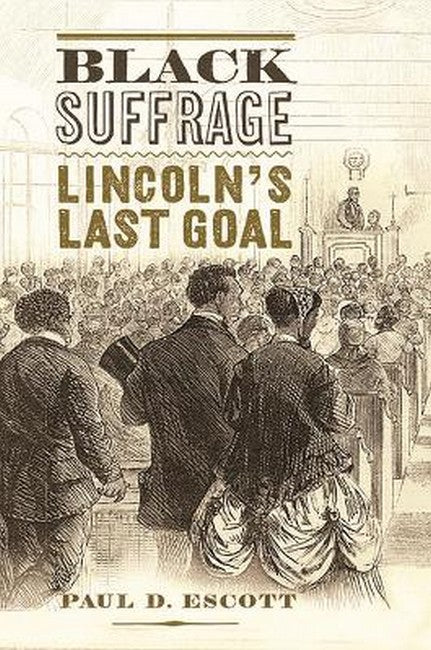Paul D. Escott is Reynolds Professor of History Emeritus at Wake Forest University and author of Slavery Remembered: A Record of Twentieth-Century Slave Narratives, winner of the Mayflower Cup, and The Worst Passions of Human Nature: White Supremacy in the Civil War North (Virginia).
Request Academic Copy
Please copy the ISBN for submitting review copy form
Description
Delivers an eminently readable narrative with valuable analysis that deepens our understanding of the battle for public opinion on the issue of African American voting rights in the immediate post-Civil War North...Escott handles the topic of his study with the complexity and nuance that it merits. -- "North Carolina Historical Review" What can be learned from examining the debates over Black suffrage in 1865? As Escott observes, a recurring theme in United States history is that regression follows progress. The champions of progress therefore must be indefatigable.-- "Journal of Southern History" The breadth of the newspaper research brings excellent rhetorical analysis and context to the arguments around Black suffrage as they unfolded in 1865. Historians will come away with a much better sense of the moment between the war and Reconstruction, and with boundless material to pull from in crafting lectures. This book also succeeds as a model of American political history. Escott shows how ideological convictions mix with pragmatic considerations of party unity, messaging around the political calendar of midterms and congressional sessions, and the push-pull between a president and their party's legislative leadership. This is an evergreen dynamic relevant to any period of United States history. For that reason, Escott's Black Suffrage should appeal to historians of the Civil War era, but also to scholars of federal politics in any era.-- "Journal of the Civil War Era" Escott is one of the nation's foremost scholars on the Civil War and Reconstruction era. Building upon his previous work, he has provided an exhaustive overview of Northern thinking on the postwar settlement--and on Black suffrage in particular. I know of no other work that provides such a thorough analysis of Northern attitudes in the months following the Civil War. --John C. Rodrigue, Stonehill College, author of Lincoln and Reconstruction Seamlessly picking up where his last work on Northern racism during the war left off... Escott's work is crucial to helping understand not only the failures of 1865, but also the journey towards the passage of the 15th Amendment... Black Suffrage should interest any scholar of the Civil War era or civil rights. -- "Civil War Monitor"

